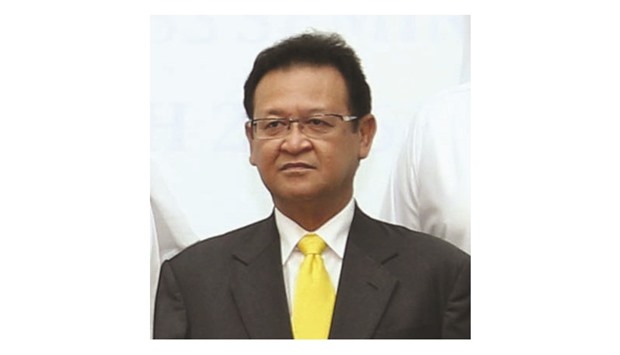Malaysia wants to infuse Qatari investments into its “halal logistics” industry as part of plans to transform itself into a global hub for halal production, Malaysian ambassador Dato’ Ahmad Jazri bin Mohamed Johar has said.
Citing the importance of maintaining high standards in the global halal industry, the ambassador stressed that the halal chain “must be properly handled and organised by those who are knowledgeable in halal.”
“One of the most important components that we are trying to get is Qatari investments for halal logistics. The halal sector has various components and not just food,” Johar told Gulf Times.
“Halal logistics involves the entire stage of the sector – from the farm up to the plate. We need to make sure that the whole stage of the logistics sector is really halal because it is important that the food is not contaminated by any non-halal material. They cannot be mixed together,” he explained.
Johar noted that some players in the global logistics industry are not maintaining halal standards. He stressed that halal logistics “must involve all halal producers” before exporting halal products to recipient countries.
“We want the industry to be in the hands of those who can really maintain halal standards. Their role is very important as halal food is very sensitive. For each producing country that claims their products are halal-certified, they have to make sure that their production is managed and controlled by an expert in halal,” the ambassador further explained.
“But we need to get more investments so that we could really control the flow of all halal goods brought from the farm to the plate – from the exporter to the importing country, so that we are certain that it is certified halal,” he added, citing the role of Qatari investors.
Asked about the role of special economic zones in Qatar, Johar said the facilities “are all part of the phases in logistics.”
“We are hoping that with the potential facilities being put up by Qatar, the logistics are all maintained as halal. We should all come together to make sure that the whole link is kept as halal,” he said referring to special economic zones under Manateq.
Sukri Abu Bakar of the Malaysian Investment Development Authority (Mida) said halal is among the sectors for investment in Malaysia, which, he said, is being poised as a “global hub for halal production.”
He said the global halal market stands at $2.3tn, and presents “a very vast opportunity” for investment explorations. He noted that industry has expanded to other countries such as China, the UK, Japan, France, Hong Kong, Taiwan, Korea, and Germany.
“These countries have a very vast market potential, not only in the food sector but also in other segments like halal food ingredients, halal cosmetics, halal pharmaceuticals, and halal services such as logistics and warehousing,” he said.
Speaking to reporters at the Qatar Chamber recently, vice chairman Mohamed bin Towar al-Kuwari said they are keen on organising a conference on halal food in Qatar, citing the growing interest of both the Qatari public and private sector on the halal industry.
“Halal has grown into a global industry today and I see many investment opportunities for Qatari businesses to promote this sector in the country. In the future, we might launch a conference for halal food in Qatar to promote the industry further to potential investors,” al-Kuwari said.

Johar: Vast opportunity for Qatar in investing halal logistics industry.
